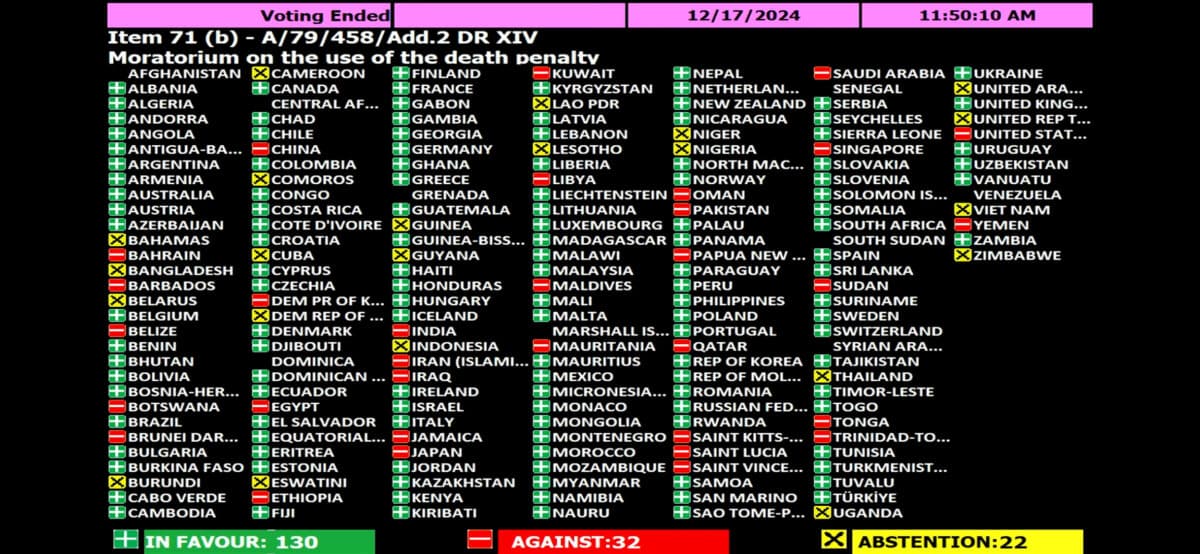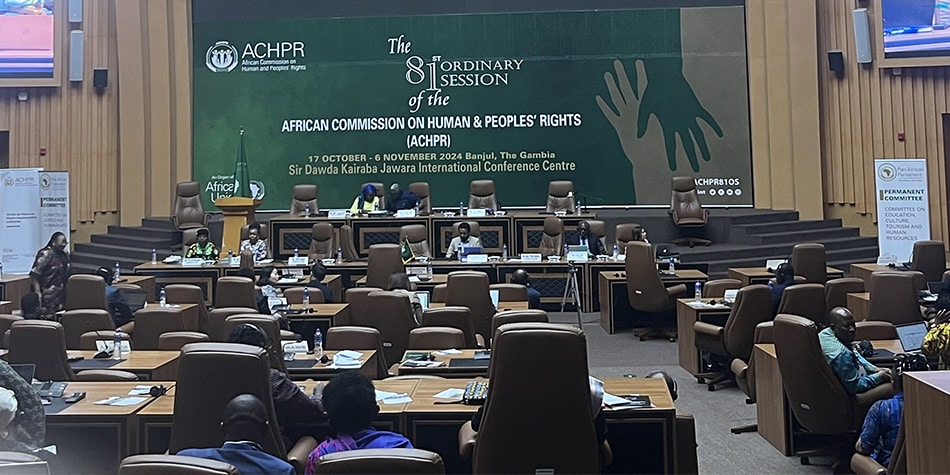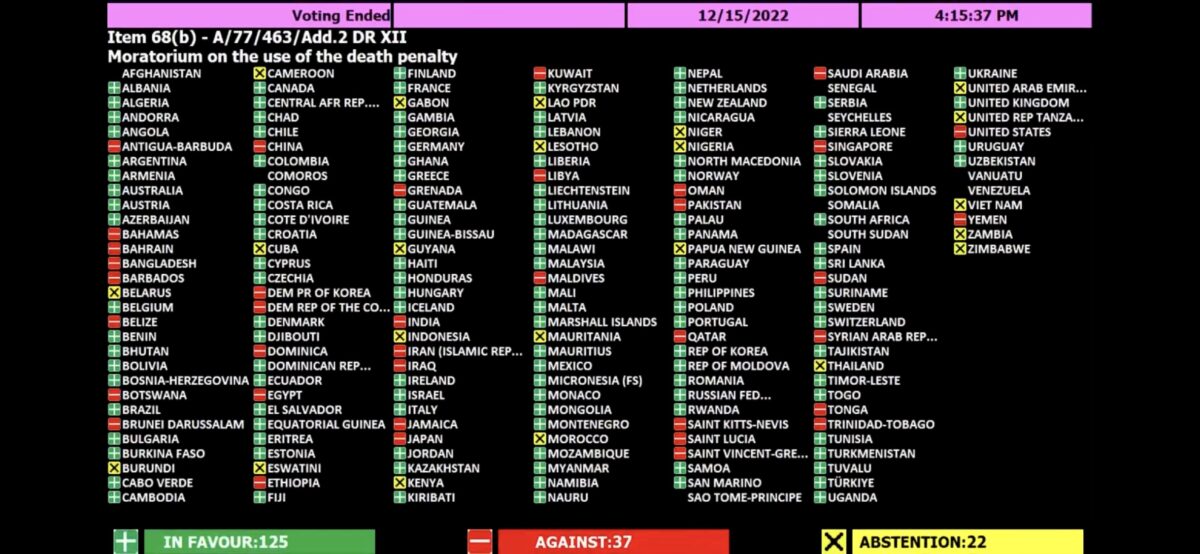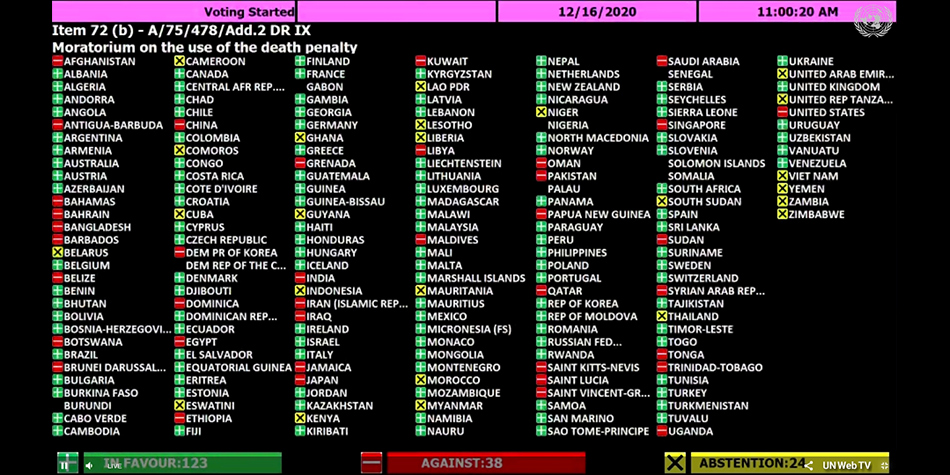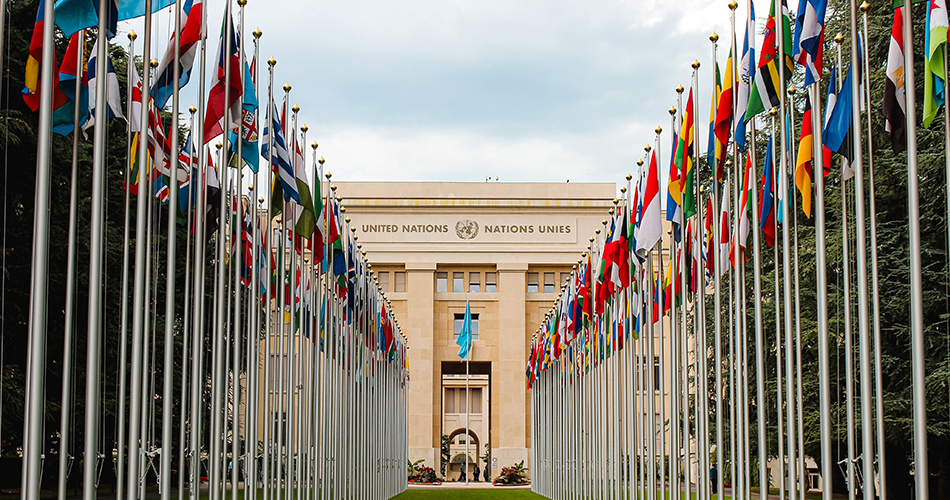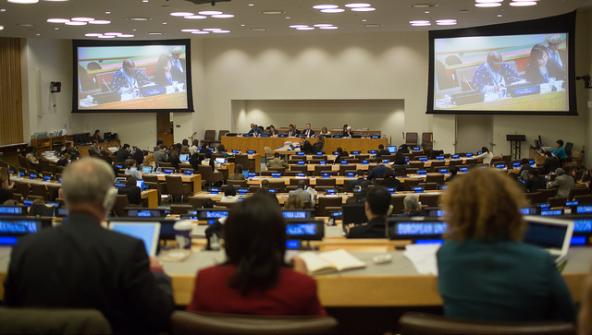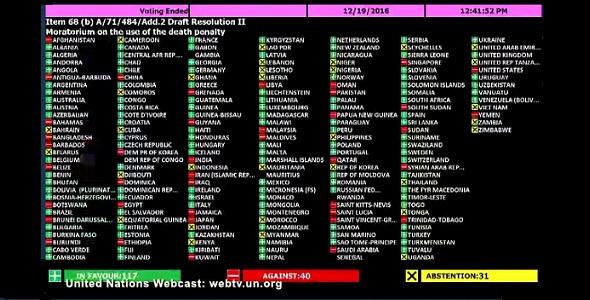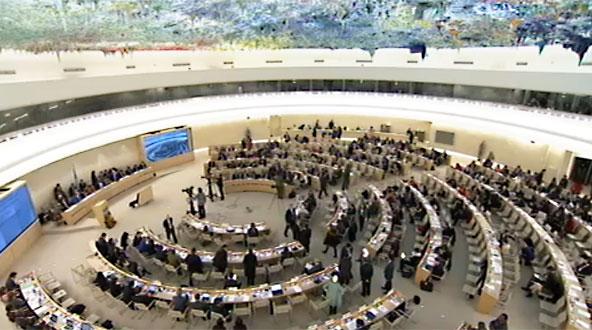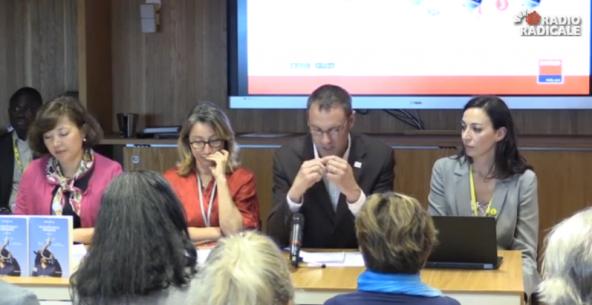Helping the World Achieve a Moratorium on Executions
In 2007, the World Coalition made one of the most important decisions in its young history: to support the Resolution of the United Nations General Assembly for a moratorium on the use of the death penalty as a step towards universal abolition.
A moratorium is temporary suspension of executions and, more rarely, of death sentences. It is provisional and often depends on the will of a key decision maker (President, Minister of Justice…). Conversely, abolition is permanent as enshrined in law.
The UN General Assembly resolution is not legally binding, even for State that favored it, yet it enjoys a great symbolic significance. It is adopted by the most democratic organ of the United Nations, where every UN member State has one vote. The resolution thereby contributes to strengthening the international impact of abolition every other year and to outlining its global momentum, which makes it particularly important to the abolitionist community. A vote in favor of the resolution may encourage States that have not yet done so to continue their commitment towards abolition in law.
“The use of the death penalty undermines human dignity”
Several attempts to pass a resolution against the death penalty at the UN General Assembly at the end of the 20th century had failed.
In 2007, however, the momentum was different because a trend towards the universal abolition had begun. Two-thirds of the world’s countries had abolished the death penalty or ceased to apply it, and the number of executions declined each year. The time had come to encourage a majority of states to adopt the principle that “the use of the death penalty undermines human dignity” and to “call upon all States that still maintain the death penalty to establish a moratorium on executions with a view to abolishing the death penalty”.
Increasing support
This decision also marked the launch of the World Coalition’s first international advocacy campaign directed towards States and international organizations. The World Coalition participated actively in the efforts for the adoption of the resolution by dedicating the 2007 World Day Against the Death Penalty to this issue. It collected more than 160,000 signatures on a petition and lobbied 105 countries. On 18 December 2007, the resolution was passed with the support of 104 UN members States, while 54 voted against and 29 abstained.
In 2008, 2010, 2012, 2014, 2016, 2018, 2020 and 2022, the World Coalition led a campaign to increase support for the new resolution and to ensure its implementation.
The vote in 2008 showed increasing support for the moratorium: 106 countries voted in favor, 46 against and 34 abstained. In 2010, even more States supported the resolution with 109 votes in favor, 41 votes against and 35 abstentions. In 2012, the resolution gained even more support with 111 votes in favor, 41 voting against and 34 abstaining. In 2014, the resolution passed with a stronger support: 117 votes in favor, 37 against, 34 abstentions and five absent. This important support remained the same in 2016: 117 votes in favor, 40 against, 31 abstentions and five absent. In 2018, the resolution reached a milestone with 121 votes in favor, 35 against, 32 abstentions and five absent. In 2020, the resolution was adopted with a record 123 votes in favor, 38 against, 24 abstentions and eight absent. Finally in 2022, 125 UN Member States voted in favor, 37 against, 22 abstained and 9 were absent.
Since 2007, the movement for abolition has grown larger and larger. More states have abolished the death penalty in law or in practice or have limited its application, more moratoria on executions have been implemented, and proposals for abolition in law have multiplied throughout the world.



